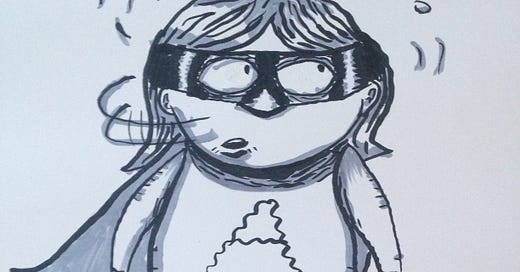I am thrilled to hear about vibrant discussions in book clubs around my work.

Let me introduce a new feature on Provoked, where I'll be responding to reader questions. To kick things off, I received an insightful question that I believe many of you can relate to. Here's an excerpt:
Dear Todd,
As I read through "The Upside of Your Dark Side" in preparation for our book club, I found the concept of finding benefits in anxiety intriguing. However, as someone who has grappled with anxiety since childhood, I still struggle to see its advantages. For me, anxiety has often felt paralyzing and limiting rather than empowering. It narrows my focus and sometimes even makes life seem overwhelming.
You wrote about the benefits of having an anxious person on the team who can keep everyone on track with project completion. Personally, I find myself yearning to rid myself of it entirely and would not want to be that "valuable" person for the team. The idea of embracing anxiety as a beneficial trait feels challenging when it's been such a significant obstacle in my life.
I'd be interested to hear your thoughts on balancing acknowledging the potential benefits of negative traits and experiences and seeking ways to manage their challenges.
Thank you for the great book and for sparking this thought-provoking discussion.
Such an important question (that I tackle frequently - click here). But I have more to say. Watch/Listen to my video answer below:
If you read one of my books and have a question, contact me on LinkedIn or:



